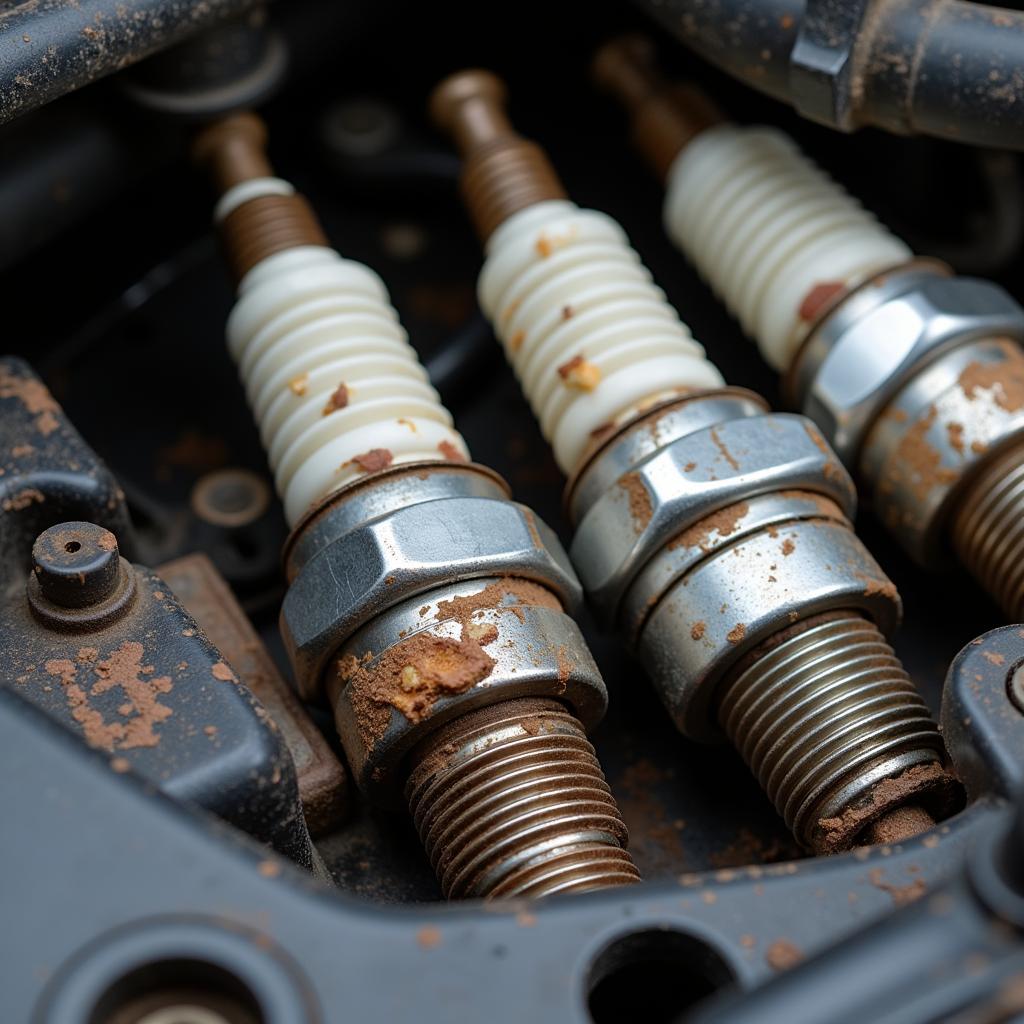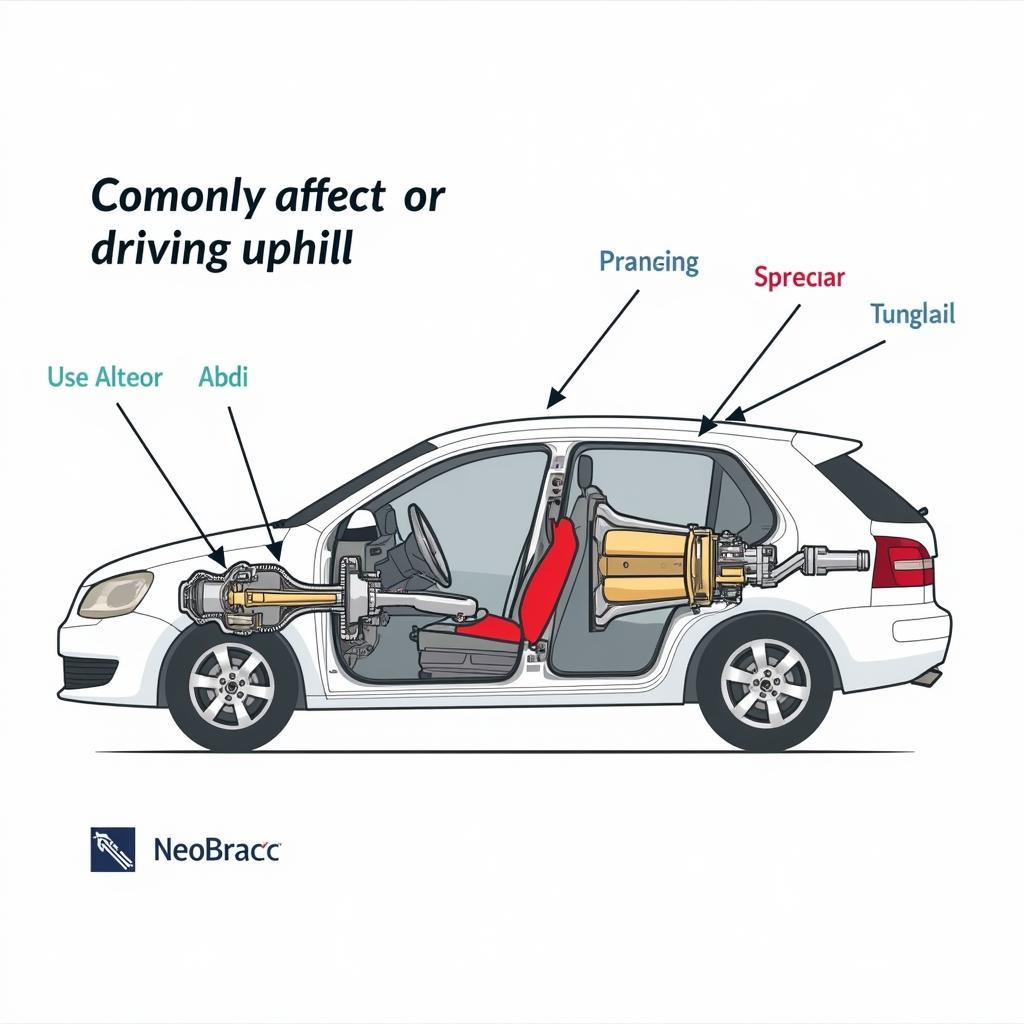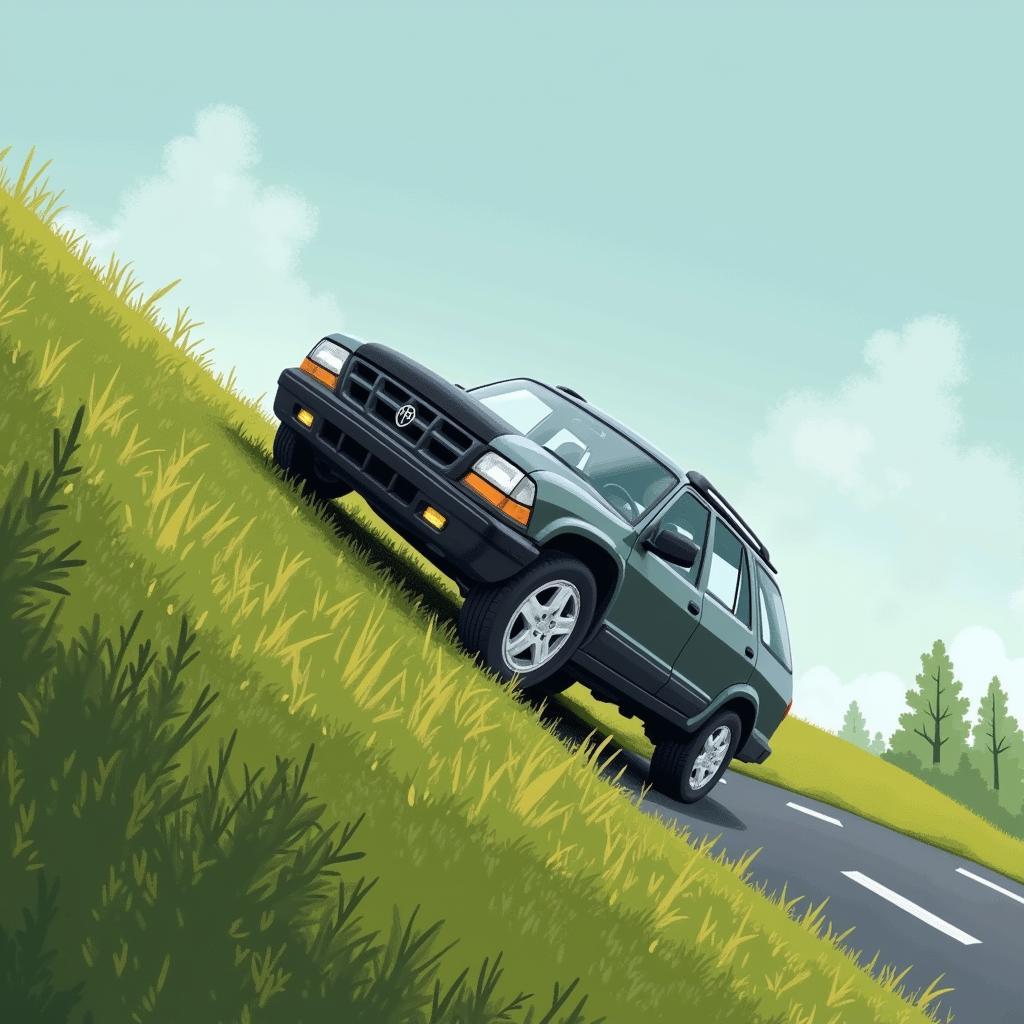Experiencing difficulty going uphill is a common car problem that can stem from various mechanical and electrical issues. This can be frustrating and even dangerous, leaving you stranded or struggling to maintain speed on an incline. This article will help you diagnose and potentially fix why your car has problem running uphill.
Similar to acceleration problems on my car, this issue can signal several underlying problems. Let’s delve into the common causes and solutions.
Common Reasons Your Car Struggles Uphill
Several factors can contribute to a car’s inability to climb hills efficiently. Here’s a breakdown of the most frequent culprits:
1. Transmission Issues
A failing transmission can significantly impact a car’s uphill performance. Slipping gears, delayed shifting, or a complete inability to shift can make climbing hills a challenge. If you notice these symptoms alongside your uphill struggles, your transmission likely needs attention.
2. Low Fuel Pressure
Insufficient fuel pressure can starve the engine of the fuel it needs, especially under the increased load of climbing a hill. This can manifest as sputtering, hesitation, or a loss of power when going uphill. This problem can be related to car fuel line problems, so a thorough inspection of the fuel system is crucial.
3. Clogged Catalytic Converter
A clogged catalytic converter restricts exhaust flow, reducing engine performance and making hill climbing difficult. You might also notice a decrease in overall fuel economy and a sulfur-like smell from the exhaust.
4. Faulty Oxygen Sensor
A malfunctioning oxygen sensor can disrupt the air-fuel mixture, leading to poor combustion and reduced power, especially noticeable during uphill driving. This can often trigger the check engine light.
5. Worn-Out Spark Plugs
Worn spark plugs can cause misfires, leading to a loss of power and difficulty accelerating, which becomes more apparent when driving uphill. Replacing worn spark plugs can significantly improve engine performance.
 Worn Spark Plugs Causing Car Uphill Struggle
Worn Spark Plugs Causing Car Uphill Struggle
6. Mass Airflow Sensor Problems
A faulty Mass Airflow (MAF) sensor can provide incorrect readings to the engine control unit, leading to an improper air-fuel mixture. This can result in decreased power and difficulty climbing inclines.
7. Engine Problems
Underlying engine problems, like low compression or worn piston rings, can dramatically reduce power output, making uphill driving a struggle. If you suspect an engine issue, it’s crucial to consult a mechanic. This could also indicate more serious symptoms of engine problems in cars, requiring immediate attention.
Why is my car struggling uphill?
Your car might be struggling uphill due to a variety of reasons, from a simple issue like worn spark plugs to more complex problems with the transmission or engine.
How do I fix a car that struggles uphill?
Diagnosing the specific cause requires a systematic approach. Checking the transmission fluid, fuel filter, and spark plugs are good starting points. If the problem persists, consulting a qualified mechanic is recommended.
What are the signs of a transmission problem when going uphill?
Slipping gears, delayed shifting, and unusual noises are common signs of transmission trouble when going uphill. These issues can severely impact your car’s ability to climb inclines.
 Transmission Problems During Uphill Driving
Transmission Problems During Uphill Driving
Can a clogged catalytic converter cause uphill problems?
Yes, a clogged catalytic converter can restrict exhaust flow, reducing engine power and causing difficulty climbing hills. This issue often accompanies a decrease in fuel efficiency and a noticeable sulfurous smell from the exhaust.
How can I check my car’s fuel pressure?
You can check your car’s fuel pressure using a fuel pressure gauge, which is available at most auto parts stores. Follow the instructions provided with the gauge to obtain accurate readings. Remember, consistent fuel problems are often related to car fuel line problems that can cause a similar uphill struggle.
Expert Insights
John Smith, Automotive Engineer: “A simple issue like a clogged air filter can restrict airflow and significantly reduce your car’s ability to climb hills efficiently. Regularly checking and replacing your air filter can prevent this problem.”
Jane Doe, Certified Mechanic: “Transmission problems are a common culprit when a car struggles uphill. Regular transmission fluid changes and inspections can help prevent costly repairs.”
 Car Climbing Hill Struggling
Car Climbing Hill Struggling
Conclusion
If your car has problem running uphill, it’s essential to address the issue promptly. From transmission issues and low fuel pressure to clogged catalytic converters and worn spark plugs, several potential problems could be at play. By understanding these potential causes and following the diagnostic tips outlined above, you can pinpoint the source of the issue and take appropriate action. Remember, regular maintenance and timely repairs are crucial for keeping your car running smoothly and safely. For further assistance or if you’re unsure about any aspect of diagnosing or repairing your vehicle, feel free to reach out to the experts at Autotippro.
Connect with us at AutoTipPro for further support. Call us at +1 (641) 206-8880 or visit our office at 500 N St Mary’s St, San Antonio, TX 78205, United States.
FAQ
-
Can bad fuel cause a car to struggle uphill? Yes, contaminated or low-quality fuel can affect engine performance and lead to difficulty climbing hills.
-
Is it safe to drive uphill if my car is struggling? It’s best to avoid driving uphill if possible until the issue is diagnosed and resolved to prevent further damage or potential safety hazards.
-
How much does it cost to fix a car that struggles uphill? The cost varies depending on the underlying cause. Simple fixes like spark plug replacements are relatively inexpensive, while transmission repairs can be significantly more costly.
-
Can low tire pressure cause uphill problems? While not a primary cause, low tire pressure can contribute to reduced traction and make uphill driving more challenging.
-
How often should I check my car’s fluids? It’s recommended to check your car’s fluids, including transmission fluid, coolant, and brake fluid, at least once a month.
-
Should I take my car to a mechanic if it’s struggling uphill? If you’re unsure about the cause or unable to fix the problem yourself, it’s always best to consult a qualified mechanic. As with car braking uphill inclined plane problem, a mechanic can help diagnose and address the issue safely and effectively.
-
Can electric cars have problems running uphill? While less common, electric cars can also experience issues related to battery performance or motor efficiency when climbing steep hills. This issue, however, offers a different perspective on what problem does electric cars solve.




Leave a Reply